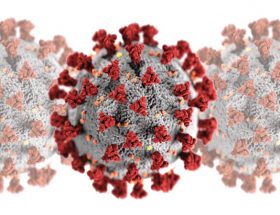I love kids, I always did and I always will. As a child, I had dreams to be a doctor, particularly a pediatrician so I can help take care of kids, make their lives better and be with them a lot.
I ended up not being one because… life happens. Anyway this post is not about me.
But just imagine a pregnant woman, who probably like me has loved kids all her life, excitedly looking forward to her due date and then when the baby finally arrives, she wants nothing to do with the baby
Yes, it happens. And it’s as a result of postpartum depression (PPD).
A lot of women go through this, and can do nothing about it especially African women. There is not a lot of awareness about this in a country like Nigeria.
Personally, I knew nothing about it until quite recently. So in my own little corner, I am going to write about what I know about and maybe, just maybe it can help someone.
What is postpartum depression?
Listening and reading stories from women who have suffered postpartum depression, I was shocked to see how very common PPD is among women.
Its a term that refers to the various moods or anxiety that comes after childbirth. It takes on a lot of form. It could be as a result of an hormonal imbalance.
One woman described it as the feeling of a dark storm cloud constantly hovering over you, even on a sunny day. It makes one go numb, and most people around may not know what is going on on the inside.
When PPD happens, it affects not just the mother but those around her. Her relationship with her partner will be affected. Her kids are more likely to suffer from anxiety in future and even possible low IQ.
A woman’s suicide risk goes up by 70% and suicide is the leading cause of death in new mothers.
We live in a world where being a super mum is the only thing you have to be as a mum. Most cases of postpartum depression do not get diagnosed. One likely cause is women who suffer from PPD fear they will be judged as insane with a lot to lose. How on earth do you not love your Baby? As a Nigerian, where being a mum is sometimes a huge task, you can imagine a mum who just had a baby telling someone that she does not feel a connection to that child, hah…
I can’t imagine the number of mothers who deal with PPD and remain silent, probably because they don’t even know what is wrong with them.
People don’t know what you don’t tell them, how much more if the sufferer does not even know what she is suffering from.
How long does postpartum depression last
PPD is an illness and it is treatable.
A new mum could get the baby blues for about two weeks but if it’s passes the 3-4 week mark, It is officially PPD.
Everyone does not recover the same way, so there is no time limit for recovery and a one size fits all approach
Signs of postpartum depression
Here are some signs that may indicate that a new mum, who has just had a baby within that last 12 months is suffering from PPD
- Feelings of being overwhelmed.
- Guilt.
- Lack of bond between mum and baby.
- You do not understand why you feel the way you do. You are confused and scared.
- Lack of emotion. You are just going through the motions. Everything is a routine. You become like a robot, just programmed to carry out tasks.
- Constantly crying because you are sad.
- Hopelessness. You feel like a failure.
- lack of appetite or the opposite binge eating.
- Insomnia. You have trouble sleeping
- loss of concentration.
- Disconnection from everyone around you. You feel like no one understands or will understand.
- You get irritated and angry easily.
- Having suicidal thoughts, you want to run away, leave your family and kill yourself
If you can relate with this, don’t worry. You are not alone. You are not crazy and there is help for you.
Causes of Postpartum depression
*Hormonal changes as result of a drop in Estrogen and Progesterone levels can trigger PPD
*Physical changes such as pain from delivery as well as finding it hard to lose the baby weight. This can cause feelings of insecurity and lack of sexual attractiveness.
*Stress
POINTS TO NOTE: There is also postpartum anxiety and postpartum OCD. When the dominant feelings are of anxiety, it is referred to as postpartum anxiety disorder.
A woman can also suffer from feelings of depression, anxiety and OCD this during pregnancy.
I found an online support group for Nigeria, Postpartum support International. I had a conversation with one of their coordinators and their replies are quite fast. You could contact them here








